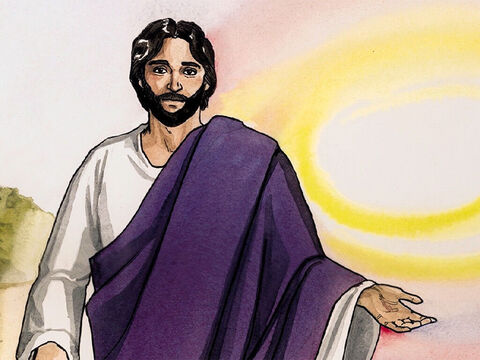Snapshot
Jesus: The man, the God, our forerunner.
Preamble
The book of John chapter 5:16-29 details the oppositional conversation of Jesus with His kindred Jews, who supposedly were to be open to receiving Him. Here the facts of the heated discussion relate to us some undebatable astounding claims Jesus made of Himself. No man can arrogate so much to Himself like that except He is a lunatic or a God in a humble man-form. He also x-rays His life to show how these claims came about.
The premise on which all His claims stood was His relationship with God. He clearly stated that He had no authority of His own. Therefore, the power expressed in His deeds were all derived. It was either as a flow with Him being a passage or as solely delegated authority.
The X-ray.
The heart’s position
In one reverent statement, He said, “The Son (Jesus) can do nothing of himself but what he sees the Father do.” That is, the Son sees the Father do and He does. In thoughts, will, actions, and words; the Father first, then the Son. He never overtakes the Father in anything. In His word, He does not come “before” the Father in anything (John 10:8). In actions, Jesus as a man was an imitator of His Father. In words, He expresses the wishes of His Father. In thoughts, the father is His foremost consideration. For Jesus, in all His beginnings, it was God (Gen 1:1). He took preeminence in everything.
How is it with you, dear Christian? In how many of your actions, deeds and thoughts do Jesus come first?
How are you fairing as an imitator of Christ Jesus?
Or is He not the firstborn from the dead - for your sins - that He too might take preeminence in your life?
The eyes’ position
This x-ray clearly shows the position of Jesus’ eyes. Jesus tells His gaze was fixed on God in that He said, “The Son can do nothing of himself but what He sees the Father do… this also the son does together with Him.” His eyes were cast on God. Jesus further said, “…and He will show Him greater works than these…” If Jesus does alone what His Father does, without which He can do nothing, then the verse in Isaiah 42:19 that says, “who is blind but my servant?” makes a complete meaning. His sight was so pure that it was all the Father did that was worth a gaze and replication. He was blind to all things else and had sharp eyesight that saw solely what His Father did. Therefore, He might have meant, “take the Father out of sight, and I’ll be handicapped.”
No wonder son and moon went dark when Jesus was on the cross of Calvary, when the Father was off sight. He cried, “My Father, My Father, why have you forsaken me?” As far as the Father’s presence was reachable, ills from persecution had no weight and tears no bitterness. Triumph was only guaranteed with God, His Father at sight!
The agony of Jesus on the cross, I suppose, was not out of wound-sustained pains, no matter how inhumane. Instead, it must have been out of loss of a travel guide in this wide, wild wilderness of a world. No one to whisper conquering words against bewildering demons into His ears. No one sighs the winning paths which He must take into His ears. It was a dark and gloomy case!
The acts of God became the acts of Jesus. Thus, the gospel accounts of Mathew, Mark and Luke and John, would not be erroneously classified if grouped as the Acts of Jesus. They are simply Jesus’ imitation of God, while the Acts of the Apostles recorded man’s imitation of Jesus – with known frailties and successes.
It was not beyond our Forerunner’s deeds to cast His gaze on the all-knowing. Therefore, it is no stringent demand when we were told to look up to the author and the finisher of our faith for a successful race. The Father’s creation-long earnestly craved desire is to see men conduct themselves like His Son (see Romans 8:29).
How is it with you, brother? Is this Forerunner at sight? Or a veil of sin or inequality with God’s expectation (inequity) for you stands in between? If within reach, there will be grace available to foil the tempter’s power and snares; death will not sting through sin, nor your knowledge of your descent to the grave come to you with a sense of defeat. Jesus has triumphed over the grave, “Victory at last” shall be the song on your lips.
If the Lord is at sight, then and only then, shall persecution be what it is meant to be to you: a disguised blessing. For in the fire of tongues (James 3:6) that wag against you for the truths you hold or the righteous stands you take, “You will not be burned; the flames will not set you ablaze.” Likewise, when traps of the enemy come flooding like a river, it will not overwhelm us. Why? Because in purview stands your guide and stay. “Who like Him our help and stay can be,” says that immortally solemn hymn by Henry F. Lyte. “When other help helpers fail, and comfort flee,” shall we not at this instance not be comfort-able by the real Comforter? Shall He then not come as the help of the helpless, helping our world-rendered orphans cry “Abba Father”?
